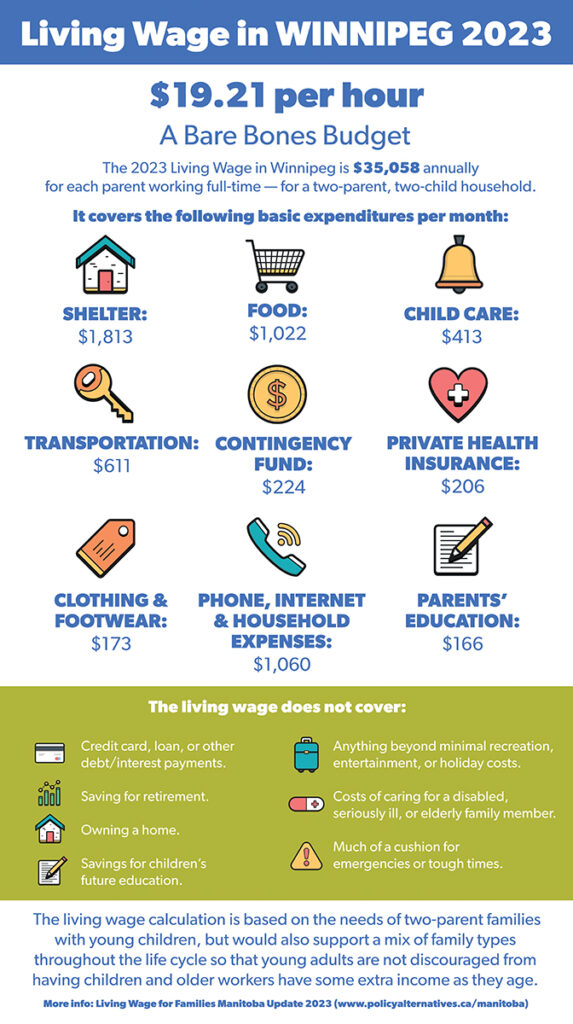According to the CCPA’s website:
“The living wage is defined as the minimum hourly wage necessary for each of two workers in a family of four to meet basic needs and to participate in the civic/social life of their community. This means that this ‘reference family’, with both persons working full time, all year, with no additional income, should be able to afford a specified quality or quantity of housing, food, utilities, transport, health care, and recreation.”
A living wage is not just about surviving but about having a decent quality of life. A living wage enables individuals to raise healthy and successful children, enjoy recreational activities, and actively participate in their social lives. It covers essential expenses such as food, shelter, transportation, education, and more.
Paying a living wage is not only the right thing to do, but it also benefits the organization. By providing fair compensation, an organization can create a more motivated and dedicated workforce, reducing turnover and fostering a stronger sense of community. When employees are financially stable, they can fully contribute to an organization’s success.
The concept of a living wage has gained momentum worldwide, as community activists have highlighted the growing poverty faced by employed workers and their families. They emphasize that paying a living wage benefits not only employees but also employers and the community as a whole. Employees are more willing to work, employers benefit from reduced turnover, and communities are strengthened when citizens have the means to lead decent and healthy lives.
The principles of Corporate Social Responsibility (CSR) recognize our responsibility to society and the environment. By paying a living wage, we can contribute to sustainable development, the welfare of society, and the expectations of stakeholders. A socially responsible organization considers the impacts of it’s decisions and activities on society, practicing transparency and ethical behavior.
Furthermore, paying a living wage aligns with human rights principles. It respects the rights of individuals, including those living in poverty. Paying a living wage shows a commitment to conducting human rights due diligence and taking measures to prevent and mitigate any adverse impacts on the rights of those in need.
Paying a living wage is not only an ethical obligation, but it also contributes to a fairer and more sustainable future for all.
Share on


